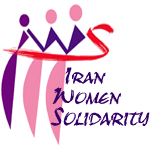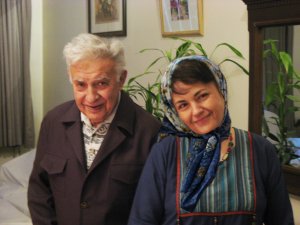ISTANBUL – Turkish Daily News: The oppression of women through violent treatment, such as the persistent misuse of religion and culture to justify killing women for violating the “norms” of sexual behavior as defined and imposed by vested interests, is by no means limited to Muslim societies, said a women rights organization in Istanbul yesterday.
Speaking at the introductory conference of a new global campaign named “Stop killing and stoning women” Farida Shaheed, Asia coordinator for the international organization Women Living Under Muslim Laws, said, �while the media tends to present so-called �honor crimes,’ which have the most dishonorable intention of harming women, documented cases testify to thousands of women being murdered every year around the world in the name of family honor.’
This campaign is inspired by and grows out of women’s struggles in their own locations to combat various manifestations of this phenomenon, for instance in Pakistan, Indonesia, Iran and Nigeria. The campaign will support and enable women’s rights advocates, national and transnational women’s movements to resist those forces, which politicize and misuse culture and religion for subjugating women and the abuse of their human rights.
At the same conference Yakin Ertürk, the United Nations Special Rapporteur on violence against women said great success has been achieved in the last 15 years and that the issue has been brought to the agenda. “This violence has become visible and many laws and standards are achieved. However the life of women is still at risk and patriarchy still wants to keep women and women’s sexuality under suppression,” she said.
Stoning and killing of women for reasons of honor or religion is declared unlawful in international law but there have been very few studies and research conducted on the issue, said Ertürk. “This issue should be handled in terms of women and sexual inequality.�
Stoning to death has been introduced as a legal form of punishment for “adultery of married persons” (zina al-Mohsena) in Afghanistan, Iran, Nigeria (about one-third of its 36 states), Pakistan, Sudan, and the United Arab Emirates. While the penalty has never been carried out by the state in either Pakistan or Iraq, communities, seemingly encouraged by the existence of the punishment in law, have carried out incidents of stoning. In May 2007, one such incidence was recorded and the disturbing video footage of a girl being stoned to death in Iraq began to circulate on the Internet. As this video demonstrates all too clearly, stoning is a particularly cruel and dehumanizing punishment involving a slow and painful process until death, and takes place in public. This public stoning occurred in a non-Muslim community.
Recent cases of stoning by state authorities have mostly occurred in Iran, where stoning is not limited to “adultery.” In May 2006, a man and a woman were stoned to death in Mashhad, Iran. A month later, Ashraf Kalhori was handed an official 15-day notification of her impending execution by stoning. Most recently, on July 5, 2007, Jafar Kiani was stoned to death in Aghche-kand village near the city of Ghazvin in Iran. Nine others, currently in Iranian prisons, await similar fates, including Kiani’s partner for alleged �adultery.”
The campaign has been initiated to address this intensifying trend of cultural and religious legitimization of lethal violence against women via stimulating and promoting discussion and public awareness of the politicization of culture and religion as a means for justifying the abuse of women’s human rights; building the capacity of women’s human rights advocates and women’s movements to document such cases of abuse and to use the relevant international instruments for advocacy, said speakers at the conference.

